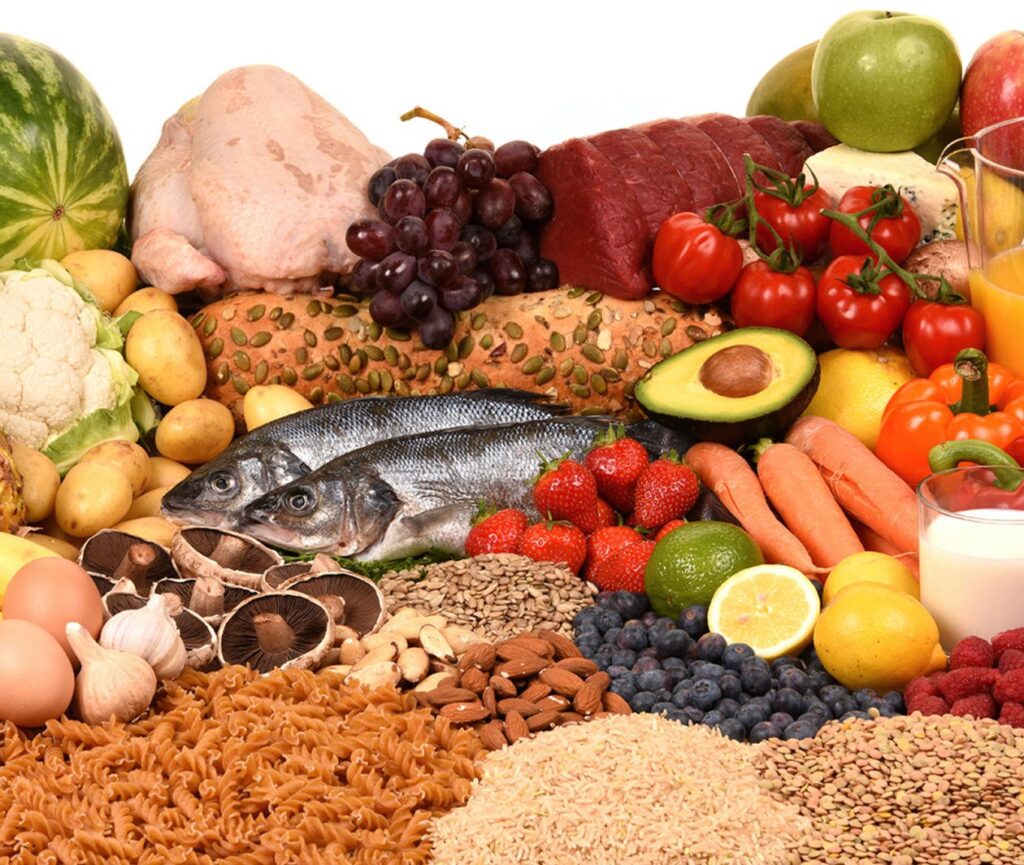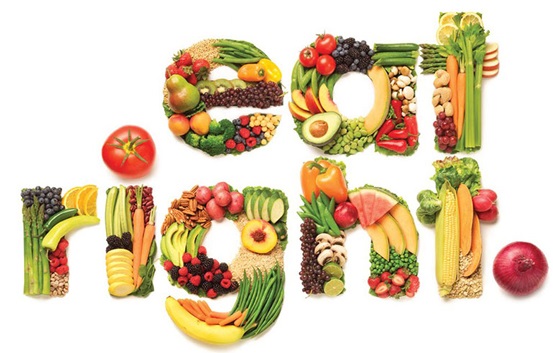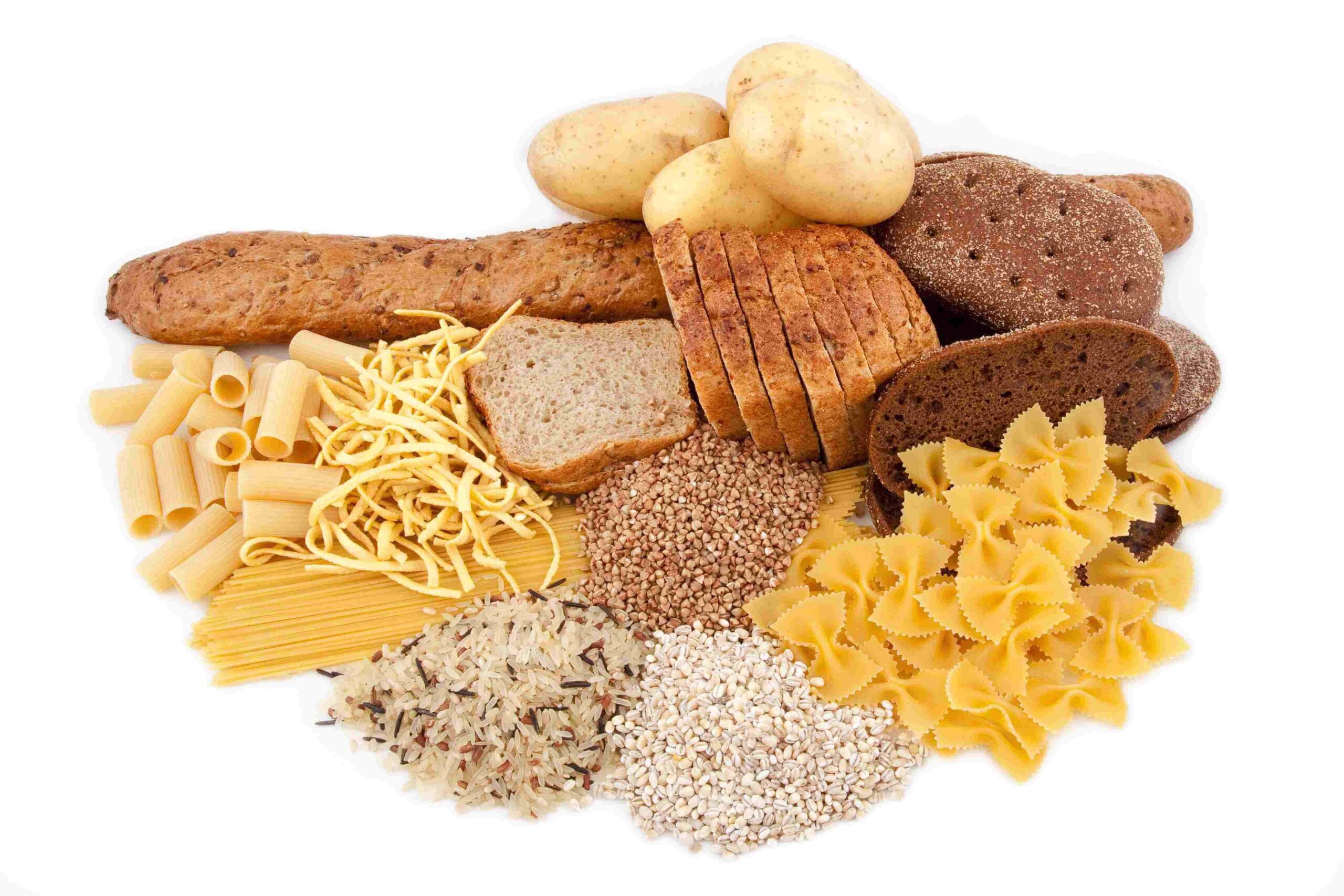What is nutrition?
Welcome to the world of nutrition, where we will help you discover what is nutrition and its role in your active and healthy lifestyle. We will provide you with simple explanations on how to stay healthy with nutrition, and how the choices you make everyday influence your body’s health. Carelessness about food choices can contribute to many of today’s most prevalent chronic diseases such as cancer, heart attack, hardening of the arteries and high blood pressure. These are the killers of society today, and nutrition is your best defense. You CAN combine your favorite foods and fun times with a nutritionally balanced diet. After all — we are what we eat! Good nutrition is fundamental for good health. It is the process by which we obtain food and use it for growth, keeping our bodies working properly and warding off diseases. Nutrition is the process by which an organism procures its nourishment, the supply of nutrients required by its body and cells to stay alive.
Understanding nutrition:
The ever-increasing instances of diet-related diseases like obesity, cardiovascular diseases, type-II diabetes and other chronic diseases are a major cause of concern today. Therefore, the need to understand nutrition and make smart food choices is vital to achieving optimum health for a lifetime. Understanding nutrition is important because the food you ingest on a day-to-day basis will have an immense influence on how your body feels and functions. Nutrition is the key to good health. Good health is not imperative to physical health alone, it implies mental and social well-being as well. In short, it means a healthy body, also provides a healthy mind and spirit. Knowing the facts about nutrition will also help you realize that fad or ‘yo-yo’ diets can be detrimental to your physical and mental health.
What is good nutrition?
Think of nutrition as the building blocks of life. The essential nutrients for life include carbohydrates, proteins, and lipids (fats), as well as fiber, vitamins, minerals, and water—the solvent for all soluble ingredients in the blood and cells. The absorption of nutrients starts the moment we begin to digest our foods, as they are transported to assist all the metabolic processes in the human body. Good nutrition is key to attaining a healthy mind and body. And the basis for good nutrition is balance, moderation and variety. A balanced-diet is what you require for optimal health. Including a variety of food is essential for a healthy mind and body, however, knowing your portion size and eating in moderation is equally important. Eating unhealthy or junk food might keep you full and satisfied, but the consequences can be detrimental. Eating right can keep you away from major illnesses. The benefits of good nutrition also include better immunity, consistent energy levels, and better dental and bone health. Nutritional science investigates the metabolic and physiological responses of the body to diet. With advances in the fields of molecular biology, biochemistry, and genetics, the study of nutrition is increasingly concerned with metabolism and metabolic pathways: the sequences of biochemical steps through which substances in living things change from one form to another.
The human body contains chemical compounds, such as water, carbohydrates (sugar, starch, and fiber), amino acids (in proteins), fatty acids (in lipids), and nucleic acids (DNA and RNA). These compounds in turn consist of elements such as carbon, hydrogen, oxygen, nitrogen, phosphorus, calcium, iron, zinc, magnesium, manganese, and so on. All of these chemical compounds and elements occur in various forms and combinations (e.g. hormones, vitamins, phospholipids, hydroxyapatite), both in the human body and in the plant and animal organisms that humans eat. The human body consists of elements and compounds ingested, digested, absorbed, and circulated through the bloodstream to feed the cells of the body. Except in the unborn fetus, the digestive system is the first system involved. In a typical adult, about seven liters of digestive juices enter the lumen of the digestive tract. These break chemical bonds in ingested molecules, and modulate their conformations and energy states. Though some molecules are absorbed into the bloodstream unchanged, digestive processes release them from the matrix of foods. Unabsorbed matter, along with some waste products of metabolism, is eliminated from the body in the feces. Studies of nutritional status must take into account the state of the body before and after experiments, as well as the chemical composition of the whole diet and of all material excreted and eliminated from the body (in urine and feces). Comparing the food to the waste can help determine the specific compounds and elements absorbed and metabolized in the body. The effects of nutrients may only be discernible over an extended period, during which all food and waste must be analyzed. The number of variables involved in such experiments is high, making nutritional studies time-consuming and expensive, which explains why the science of human nutrition is still slowly evolving.

In general, eating a wide variety of fresh, whole (unprocessed), foods has proven favorable compared to monotonous diets based on processed foods. In particular, the consumption of whole-plant foods slows digestion and allows better absorption, and a more favorable balance of essential nutrients per Calorie, resulting in better management of cell growth, maintenance, and mitosis (cell division), as well as better regulation of appetite and blood sugar. Regularly scheduled meals (every few hours) have also proven more wholesome than infrequent or haphazard ones.
Sources of nutrients
Ideally, nutrients should be obtained from food sources, but in the case of athletes to achieve PDIs many times means using supplements. Otherwise, an athlete would need to take in an overabundance of calories to meet their nutritional needs. In other words, supplements provide nutrients without providing more calories than necessary. Most of us would benefit from use of ODAs, and if you’re extremely physically active you would be wise to meet with a sports nutritionist to determine your Performance Daily Intakes.
What are nutrients?
Nutrients are molecules in food that all organisms need to make energy, grow, develop, and reproduce. Nutrients are digested and then broken down into basic parts to be used by the organism. A differentiation is made between those that it needs in large quantities (macro-nutrients) in order to cover its energy requirements, and others which are just as essential but of which it only needs very little (micro-nutrients). The macro-nutrients include carbohydrates, proteins and fats. Micro-nutrients are vitamins, minerals and secondary plant compounds.
Macronutrients (Macros)
Carbohydrates
Carbohydrates are the sugars, starches and fibers found in fruits, grains, vegetables and milk products. Though often maligned in trendy diets, carbohydrates — one of the basic food groups — are important to a healthy life. Carbohydrates are macronutrients, meaning they are one of the three main ways (proteins, fats & Carbohydrates) the body obtains energy, or calories.
Function of carbohydrates
Carbohydrates provide fuel for the central nervous system and energy for working muscles. They also prevent protein from being used as an energy source and enable fat metabolism. Carbohydrates are important for brain function. They are an influence on “mood, memory, etc., as well as a quick energy source.
How much carbohydrates?
The recommended daily amount (RDA) of carbs for adults is 135 grams, however, it is recommended that everyone should have his or her own carbohydrate goal. Carb intake for most people should be between 45 and 65 percent of total calories. One gram of carbohydrates equals about 4 calories, so a diet of 1,800 calories per day would equal about 202 grams on the low end and 292 grams of carbs on the high end. However, people with diabetes should not eat more than 200 grams of carbs per day, while pregnant women need at least 175 grams.

Types of carbohydrates
Carbohydrates are classified as simple or complex. The difference between the two forms is the chemical structure and how quickly the sugar is absorbed and digested. Generally speaking, simple carbs are digested and absorbed more quickly and easily than complex carbs. Simple carbohydrates contain just one or two sugars, such as fructose (found in fruits) and galactose (found in milk products). These single sugars are called monosaccharides. Carbs with two sugars — such as sucrose (table sugar), lactose (from dairy) and maltose (found in beer and some vegetables) — are called disaccharides. Simple carbs are also in candy, soda and syrups. However, these foods are made with processed and refined sugars and do not have vitamins, minerals or fiber. They are called “empty calories” and can lead to weight gain.
Complex carbohydrates (polysaccharides) have three or more sugars. They are often referred to as starchy foods and include beans, peas, lentils, peanuts, potatoes, corn, parsnips, whole-grain breads and cereals. While all carbohydrates function as relatively quick energy sources, simple carbs cause bursts of energy much more quickly than complex carbs because of the quicker rate at which they are digested and absorbed. Simple carbs can lead to spikes in blood sugar levels and sugar highs, while complex carbs provide more sustained energy. Studies have shown that replacing saturated fats with simple carbs, such as those in many processed foods, is associated with an increased risk of heart disease and type 2 diabetes. So it’s best to focus on getting primarily complex carbs in your diet, including whole grains and vegetables.
In the body, carbs break down into smaller units of sugar, such as glucose and fructose. The small intestine absorbs these smaller units, which then enter the bloodstream and travel to the liver. The liver converts all of these sugars into glucose, which is carried through the bloodstream — accompanied by insulin — and converted into energy for basic body functioning and physical activity. If the glucose is not immediately needed for energy, the body can store up to 2,000 calories of it in the liver and skeletal muscles in the form of glycogen. Once glycogen stores are full, carbs are stored as fat. If you have insufficient carbohydrate intake or stores, the body will consume protein for fuel. This is problematic because the body needs protein to make muscles. Using protein instead of carbohydrates for fuel also puts stress on the kidneys, leading to the passage of painful byproducts in the urine.
Fibers
Fibers are another type of carbohydrates which promote healthy bowel movements and decrease the risk of chronic diseases such as coronary heart disease and diabetes. However, unlike sugars and starches, fibers are not absorbed in the small intestine and are not converted to glucose. Instead, they pass into the large intestine relatively intact, where they are converted to hydrogen and carbon dioxide and fatty acids. Approximately 40-50 grams of fibers are required every day. Sources of fiber include fruits, grains and vegetables, especially legumes.
Good carbs vs. bad carbs
Carbs usually considered good are complex carbs, such as whole grains, fruits, vegetables, beans and legumes. These are not only processed more slowly, but they also contain a bounty of other nutrients. Carbs commonly considered bad include pastries, sodas, highly processed foods, white rice, white bread and other white-flour foods. These are foods with simple carbs. Bad carbs rarely have any nutritional value.
Glycemic index
Recently, nutritionists have said that it’s not the type of carbohydrate, but rather the carb’s glycemic index, that’s important. The glycemic index measures how quickly and how much a carbohydrate raises blood sugar.
High-glycemic foods like pastries raise blood sugar highly and rapidly; low-glycemic foods raise it gently and to a lesser degree. Some research has linked high-glycemic foods with diabetes, obesity, heart disease and certain cancers.
Carbohydrate deficiency
Not getting enough carbs can cause problems. Without sufficient fuel, the body gets no energy. Additionally, without sufficient glucose, the central nervous system suffers, which may cause dizziness or mental and physical weakness, according to Iowa State University. A deficiency of glucose, or low blood sugar, is called hypoglycemia. If the body has insufficient carbohydrate intake or stores, it will consume protein for fuel. This is problematic because the body needs protein to make muscles. Using protein for fuel instead of carbohydrates also puts stress on the kidneys, leading to the passage of painful byproducts in the urine.

Dr Saranjeet Singh
Fitness & Sports Medicine Specialist
Lucknow










Once again very well articulated, explaining the complex topic of Nutrition in a very simplified manner.